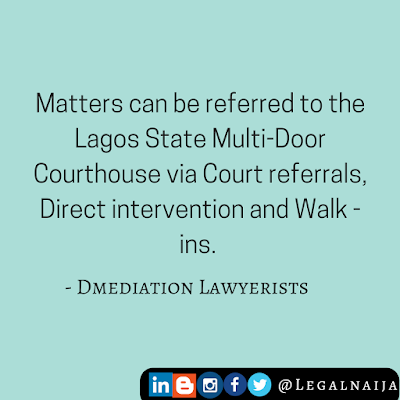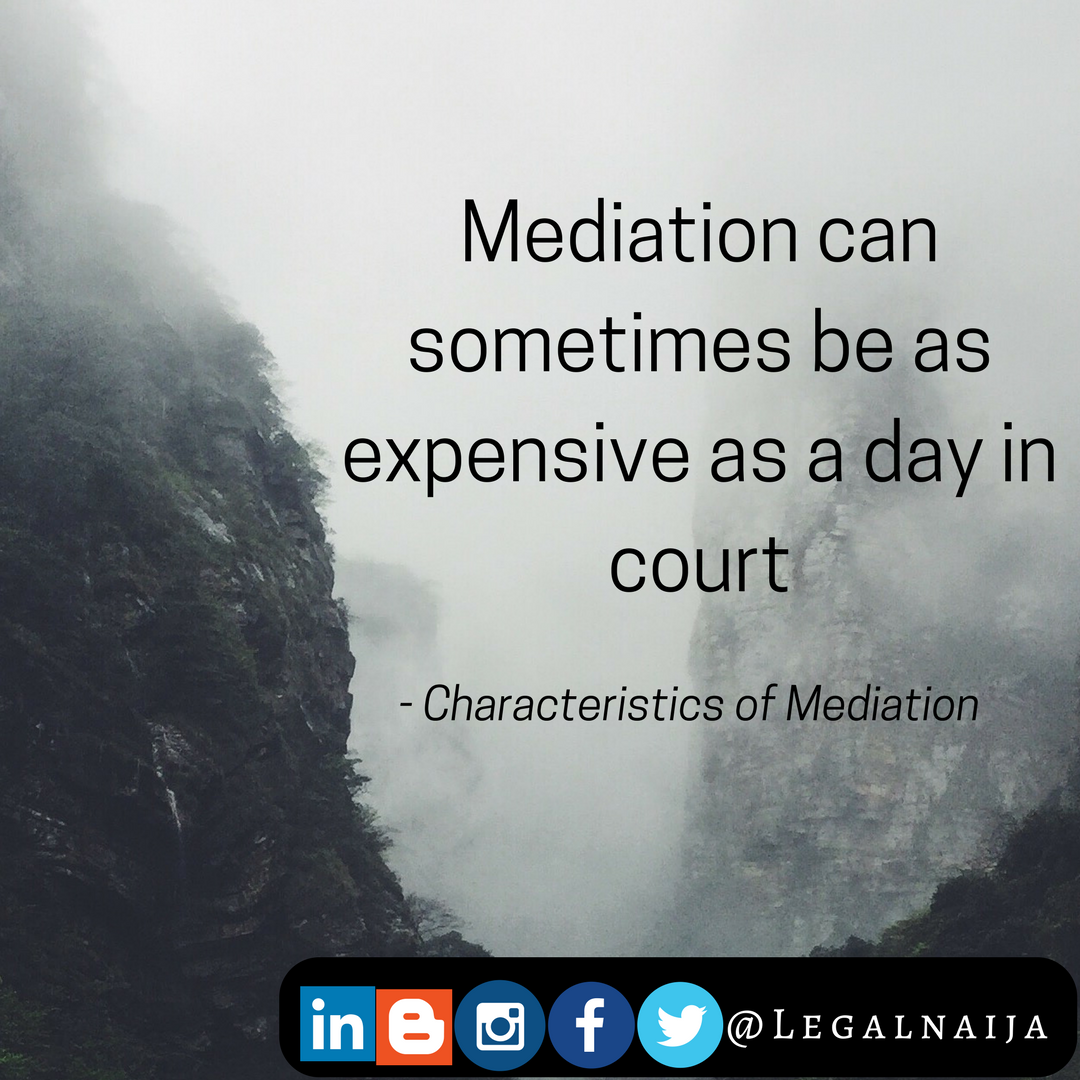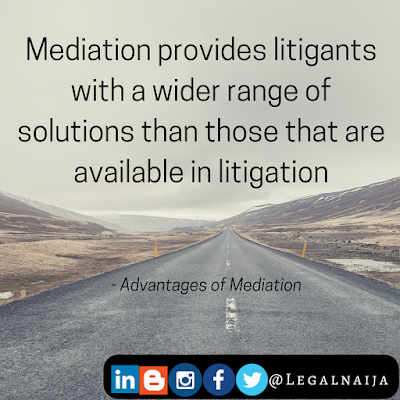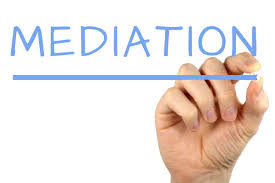
The Lagos Multi-door Courthouse II – Referrals

There are three ways through which matters
can be referred to the Lagos Multi-Door Courthouse. They are;
can be referred to the Lagos Multi-Door Courthouse. They are;
WALK-IN:
any
party to a dispute may initiate Mediation, Arbitration, Early Neutral
Evaluation or any other ADR services by visiting the LMDC or writing to its
Director. Matters from other reputable ADR organizations may be filed at the
LMDC for settlement.
any
party to a dispute may initiate Mediation, Arbitration, Early Neutral
Evaluation or any other ADR services by visiting the LMDC or writing to its
Director. Matters from other reputable ADR organizations may be filed at the
LMDC for settlement.
COURT
REFERRAL: disputes
are referred by Judges of the High Court or Magistrate Court to the LMDC in
appropriate circumstances. Apart from the High Court and Magistrate Court of
Lagos State, matters may be referred to the LMDC from the Federal High Court or
Courts of other jurisdictions outside Lagos.
REFERRAL: disputes
are referred by Judges of the High Court or Magistrate Court to the LMDC in
appropriate circumstances. Apart from the High Court and Magistrate Court of
Lagos State, matters may be referred to the LMDC from the Federal High Court or
Courts of other jurisdictions outside Lagos.
DIRECT
INTERVENTION: the
LMDC through the Director may in circumstances where the public interest or the
interest of the disputing parties so demand, approach the parties with a view
to assisting in the resolution of their dispute.
INTERVENTION: the
LMDC through the Director may in circumstances where the public interest or the
interest of the disputing parties so demand, approach the parties with a view
to assisting in the resolution of their dispute.
IMPORTANT
POINTS TO NOTE ABOUT THE LAGOS MULTI-DOOR COURTHOUSE (LMDC) ESPECIALLY FOR
LAWYERS AND MEDIATION ADVOCATES
POINTS TO NOTE ABOUT THE LAGOS MULTI-DOOR COURTHOUSE (LMDC) ESPECIALLY FOR
LAWYERS AND MEDIATION ADVOCATES
Section
16 of the LAGOS MULTI-DOOR COURTHOUSE (LMDC) 2007 specifies amongst
others that it is the responsibility of the Judge of the High Court of Lagos to
control and manage effectively proceedings in court and issue orders which
would encourage the adoption of ADR methods in dispute resolution, including
the mandatory referral of parties to explore settlement at the LMDC whenever
one of the parties to an action is
willing to do so.
16 of the LAGOS MULTI-DOOR COURTHOUSE (LMDC) 2007 specifies amongst
others that it is the responsibility of the Judge of the High Court of Lagos to
control and manage effectively proceedings in court and issue orders which
would encourage the adoption of ADR methods in dispute resolution, including
the mandatory referral of parties to explore settlement at the LMDC whenever
one of the parties to an action is
willing to do so.
In a similar vein, Section 32 of the TENANCY LAW 2012 provides that in proceedings
under the Law, the court shall promote reconciliation, mediation and amicable
settlement between parties. By virtue of this provision, the High Court or
Magistrate Court may refer tenancy proceedings or any part of it to mediation
at the Lagos Multi-Door Courthouse (LMDC) or to the Citizen Mediation Centre
(CMC).
under the Law, the court shall promote reconciliation, mediation and amicable
settlement between parties. By virtue of this provision, the High Court or
Magistrate Court may refer tenancy proceedings or any part of it to mediation
at the Lagos Multi-Door Courthouse (LMDC) or to the Citizen Mediation Centre
(CMC).
Footnotes:*
Standing Conference of Mediation Advocates (SCMA) *The Lagos Multi- Door
Courthouse Law (LMDC) 2007* The LMDC Practice Direction on Mediation Procedure*
The Multi Door Courthouse Code of Ethics for Mediators* Guidelines For
Enforcement Procedure *Guidelines for Court referrals to Alternative Dispute
Resolution *Principles of Alternative Dispute Resolution by Stephen J.Ware *Effective
Mediation Advocacy by Andrew Goodman.*The Lagos Multi-Door Courthouse Neutrals’
Handbook.
Standing Conference of Mediation Advocates (SCMA) *The Lagos Multi- Door
Courthouse Law (LMDC) 2007* The LMDC Practice Direction on Mediation Procedure*
The Multi Door Courthouse Code of Ethics for Mediators* Guidelines For
Enforcement Procedure *Guidelines for Court referrals to Alternative Dispute
Resolution *Principles of Alternative Dispute Resolution by Stephen J.Ware *Effective
Mediation Advocacy by Andrew Goodman.*The Lagos Multi-Door Courthouse Neutrals’
Handbook.
Follow
us on;
us on;
Facebook Page: fb.me/dmediationlawyeristng
Twitter: mediationlawng




